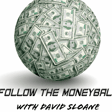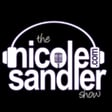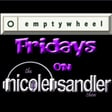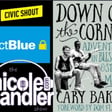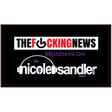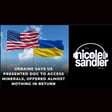Become a Creator today!Start creating today - Share your story with the world!
Start for free
00:00:00
00:00:01

Follow the Moneyball Episode #8 Geoff Baker
David talks with Author and Sportswriter Geoff Baker about his career in Sportwriting and his book, "Rising from the Deep"
Transcript
Introduction to Follow the Money Ball
00:00:02
Speaker
Welcome to Follow the Money Ball, a podcast at the intersection of sports and business. Here's your host, David Sloan. I'm David Sloan and I have opinions.
David Sloan's MLB Agent Experience
00:00:12
Speaker
I also have 44 years of experience as an agent for MLB players to back those opinions up.
Introducing Jeff Baker
00:00:18
Speaker
I'm talking with Jeff Baker. I think Jeff Baker could be described in many ways, but mostly as a writer, currently with the Seattle, is it the Seattle Times? Yes, yes. Seattle Times, as well as the author of several books, many of them hockey oriented, but we'll leave that game to the side for the moment. I'm not well versed enough in hockey to interview anyone about it.
00:00:44
Speaker
But there are certainly some things that I do want to discuss with you. However, before we get into that, Jeff, I'd like to start off by starting off.
Jeff's Journey into Sports Writing
00:00:54
Speaker
How did you get into the sports writing business? Were you always a writer as a kid? Did you always do well in English class? That sort of thing?
00:01:05
Speaker
I actually played football when I was younger and I ended up blowing up my knee. This is when I was about 17. Well, actually it was earlier than that, but I started writing for the local paper, covering the team that I was playing for. It was a city team. And then even after I started playing again, I kept the writing going and ended up going to journalism school.
Business Focus in Sports Journalism
00:01:27
Speaker
at first with the Montreal my first serious daily n it for years, did some i for them on the city side
00:01:44
Speaker
But they wanted me to get into sports writing a little bit. And so I did. And I found that I was writing more about the business issues of sports at times than I was about the on field stuff. And I was actually pretty good at it. And that ended up leading to a job covering baseball for the Toronto Star for years.
00:02:02
Speaker
and that sort of that business angle continued for quite a bit writing about at the time you know whether they should get a new baseball stadium there they had just opened up what was then known as the Skydome and it became the Rogers Center after Rogers Communications bought it but you know it quickly became outdated and there was a push to
00:02:25
Speaker
you know to see whether they could use public money to update that facility and there was a lot of issues around that so I got more into more comfortable writing about sports business issues at the time and you know the spending or lack of by the baseball team and that led to a job in Seattle with the Seattle Times covering the Mariners and then I did that for seven more years and then after that they gave me a sports business column made me a sports investigative reporter and I did that for years
00:02:52
Speaker
in Seattle, much of the last 10 years, I would say, and got into writing about the arena issues.
Transition to Hockey Writing
00:02:58
Speaker
They were trying to get a new arena built here after they lost the Supersonics to Oklahoma City. And so I covered that for years, and that led to the NHL franchise coming here. And since I grew up in Canada, who else to write about an NHL team than me? And so I sort of shifted gears a little bit and have moved into writing about hockey the last two years. But it's been a journey, to say the least.
00:03:21
Speaker
Definitely. Were you from Montreal originally? Is that where you grew up? I did. I grew up there, lived there for 29 years, and then moved to Toronto in the midst of the 1998 baseball season, which was very interesting at the time a lot of stuff was happening around the team.
00:03:37
Speaker
No doubt.
Memories from the Blue Jays
00:03:38
Speaker
Well, that's where you and I first encountered each other when I was representing Carlos Delgado. And interestingly enough, we're planning on moving. And if you see the filing cabinet back there, I spent most of the last few days distilling that entire filing cabinet down into a stack of things about that big.
00:04:02
Speaker
that I'm saving it from it and many of those having to do with that time period. What sticks out the most in your mind from that time period in terms of when you first started covering the J's?
00:04:18
Speaker
Wow, where to start? Well, Tim Johnson was the manager and he was telling people about his Vietnam War exploits at the time. Unfortunately, he never fought in the Vietnam War. And so I ended up writing basically
00:04:33
Speaker
sort of breaking that story i guess you could say there was a lot of turmoil going on between johnson and his coaching staff because they kind of knew that he was telling lies about serving in the war and he you know ended up costing johnson his career he was done after one season of 88 wins which you don't see very often in the sports world he's basically
00:04:56
Speaker
in baseball unofficially for life. I don't know if that punishment fits the crime given what we've seen over the last 25 years as far as what people can get away with in the sports world and get second and third and fourth chances.
Stories of Shannon Stewart and Jesse Cross
00:05:07
Speaker
He never really got a second chance on it. I do feel somewhat badly about that. But that's certainly one thing that sticks out. I believe you were once a sports agent for Shannon Stewart, were you not, or? I was, correct. I had several guys on the Jays. I had Shannon Stewart. I had Mike Timlin. Yeah.
00:05:25
Speaker
I had got my name at Anthony Ward. I had got my name with Sharnal Adriana Ricardo Jordan.
00:05:33
Speaker
I'm trying to remember the other guy, Jesse Cross. You talk about somebody throwing their career away. Jesse Cross, I don't know if you ever followed him very much, but he was an undersized right-handed pitcher who had success every step up the ladder. And he finally became a minor league free agent. And I got him a job with another team, I believe it was Baltimore.
00:05:58
Speaker
And this was, you know, Baltimore wasn't doing great. So they certainly could use the, the pitching. And, uh, one morning during spring training, I get a call from him and this is like early in spring training, like maybe second day or something of spring training. And I get a call from, I can't remember who it was, but somebody in the Baltimore organization, where's your client? And I said, well, uh,
00:06:20
Speaker
I'm assuming he's here for spring training. No, we have no idea where he is. He's not in the team hotel and we can't get a hold of him. To make a long story short, Jesse grew up in a small town called Ringgold, Georgia, which is a town on the border of Georgia and Tennessee, and literally his wife wouldn't leave.
00:06:42
Speaker
She didn't travel with him during any of the minor league seasons when he was playing. She stayed home. And here he was with an opportunity to make a big league club. And she wouldn't come down for spring training. And she wasn't going to go to Baltimore if he made the team. And he just walked away. He went back to Georgia. Last I heard of him, he was an assistant coach for a high school team there who had a draft prospect
00:07:11
Speaker
And I reached out to him because I still had his phone number and that was it. That was all I ever heard of the guy. So, you know, some of those, some of those stories are kind of funny. Johnson, I know from guys who I represented on the team that year was not necessarily the most popular guy in that clubhouse. In addition to his Vietnam stories, I would tend to agree with you that the punishment, if he indeed is being punished for lying about his Vietnam experience,
00:07:40
Speaker
I would agree with you that the punishment doesn't fit the crime and that people in baseball who have committed significantly more serious offenses have been allowed back into the
Delgado's Silent Protest
00:07:51
Speaker
game. So that shouldn't be what's keeping him from the game if indeed that is, but no one's asking, uh, no one with a team at any rate is asking my opinion. So you started in Montreal, you moved to Toronto.
00:08:05
Speaker
1998 was your first year then. That was an eventful year. The Blue Jays had a decent team. In addition to Carlos, they had Sean Green, who Sean was having some really good years that year. Back then, they had Alex Gonzalez. They had some decent up-and-coming young players.
00:08:24
Speaker
Yeah, they also had a pitcher named Roger Clemens. They had Jose Canseco that year. That's the other thing that sticks out in my mind from that year was getting to follow Jose Canseco and Roger Clemens up close. This is before Canseco ended up writing his book about steroid use in baseball. And I remember the strength trainer on that team was Brian McNamee, who I got to.
00:08:53
Speaker
you know, spend some time with various times. He was always a nice guy with me, but then of course, you know, it became headline news when him and him and Roger Clemens were battling in the courts and on national television every night a few years later. So, you know, when you look back on that period in the context,
00:09:15
Speaker
of what's happened since. I mean, you know, it's hard not for that, not to stand out that, yeah, I got to stick around in the whole epicenter of that. And the other thing that sticks out in my mind from that year was getting to see the debut of Roy Holiday. I think the first time I met Roy Holiday, he had just come up for the Hall of Fame game. They were playing the Hall of Fame game in Cooperstown, and they brought Holiday up from AAA. And I went and talked to him a little bit as he was warming up and stretching in the outfield.
00:09:44
Speaker
And then he went on that year, and I think it was in his second major league start, he came within and out of throwing a no-hitter. And then of course he had a whole long road after that, and I got to know Halliday.
00:09:57
Speaker
Well, you know, fairly well. Won't say I knew him intimately as a close personal friend, but as a writer, I got to do some good stories with him. And, you know, it's just seeing how, you know, his life ended and everything and what happened afterwards, you know, obviously makes me very sad.
00:10:17
Speaker
I think the last time I spoke to him, he was in Toronto with the Phillies and was just about to be traded at the time. Actually, sorry, he was in Seattle with Toronto and was getting close to being traded to Philadelphia.
00:10:30
Speaker
at the time and it was right at the trade deadline so I got a C to him right before the game and never saw him again after that but we were actually on the same Twitter for a while and so those things really stand out as well as with your client Carlos Delgado writing about his not standing for God Bless America.
00:10:52
Speaker
which kind of followed him and it's just interesting looking at modern times now because back then when I wrote about that, that was in 2004, his last season with the Jays and of course there was no Twitter back then and so that whole controversy didn't really blow up into a controversy right away. I look now at Colin Kaepernick and
00:11:14
Speaker
what happened to his career and how quickly that became a national controversy, whereas Carlos Delgado was taking a stand on behalf of the people of Vieques and opposing the war in Iraq and the use of uranium depleted shells for test bombing in Vieques, Puerto Rico.
00:11:31
Speaker
And it took a few weeks for that to become a major thing where he was actually getting booed when he went to New York. And then, of course, when he joined the Mets, he had to agree to end his silent protest. But I look at the differences between the modern era now with Twitter. And I wonder sometimes how quickly that would have escalated had that been the case in 2004 versus Kaepernick today.
Impact of Vieques Protest
00:11:54
Speaker
Carlos also would have been able to get his story out a little better if Twitter existed because my understanding and my discussions with him was that, yeah, he was kind of protesting in regard to the Vieques situation and many of the people that listen to this may not know what that was. There's a small island off the coast of
00:12:14
Speaker
Puerto Rico called Vieques and it has been used for years and years and years by I believe the US Navy as a target for bombing practice and They've really done not they've been very little to help the people that actually lived there it's not deserted and they've done next to nothing to clean up the the results of the bombing the the Contamination of the soil, etc, etc, etc. So his protest was yes somewhat about that, but it was also a
00:12:42
Speaker
When they started playing God Bless America right after 9-11, he was okay with that. But when it was four years later and they're still playing God Bless America, I believe his protest, if you want to call it that, was just as much about that as it was about Vieques. It was like, enough is enough.
00:13:05
Speaker
And we've observed this. It's now time to turn the page and go on and stop holding up the game to play the song just for the sake of playing the song. Because we've been doing it for three years. And now no one has the nerve, if you will, to stand up and say, OK, we're done with that. Let's move on. Carlos was an interesting guy with the press.
00:13:32
Speaker
I'm sure you saw a different side of it than I did. He was very good with the press, but some of the things that he said to me about this writer, that writer, the other writer, he didn't appreciate, first of all, how difficult the job is, number one, because it's not an easy job. And I know a little bit about
Demands of Sports Journalism
00:13:57
Speaker
that because like yourself,
00:13:59
Speaker
I wrote for a newspaper when I was in high school. After my senior year, I had played football and I covered spring practice in football for the schools in my area when covered their spring practices and or their spring practice games at the end of the spring practice.
00:14:18
Speaker
I liked it. I enjoyed it. They paid me a ridiculous amount of money for 1969 for somebody who at the time I hadn't even turned 17 yet. And I particularly enjoyed the money. What I didn't enjoy was the deadline. And I, you know, it's one thing when you feel something and you're then able to sit down and write about it. But when you're on a situation where
00:14:44
Speaker
Yeah, this is what you're feeling or observing, but you have to feel it and observe it and put it into a coherent form. And oh, by the way, have that done two hours after you see it and observe it and feel it. That's not necessarily the easiest thing in the world to do, particularly when you're covering teams that maybe they're not in the pennant race or whatever the case may be, or some of the players are not the easiest people in the world.
00:15:10
Speaker
to talk to. For example, two of my clients, Carlos and Shannon Stewart. Shannon was not a talker. He didn't talk a whole lot to anybody. I can't imagine he had to be an easy interview as opposed to Carlos. Despite the fact that he got favorable press, Carlos had to be a tough interview as well because he's a very bright guy. And unlike a lot of players who will
00:15:39
Speaker
Uh, answer any question. I'm sure that there were times when he was asked questions and his response was, um, you know, kind of on the law, on the order of, are you serious or, you know, something perhaps a little bit more, uh, shall we say harsh about that? And then you got people like Mike Timlin. I imagine, you know, Mike, another client of mine who was with the blue jays had to be a fairly easy interview. Mike was always a very amiable sort and very nice guy, very nice guy. So, um,
00:16:09
Speaker
You know, it had to be an interesting team to work with back then. What teams of the teams you've covered have been the most, the teams that you've enjoyed the most covering
Challenges in Baseball Coverage
00:16:22
Speaker
it. We can talk about hockey if we have to talk about hockey here.
00:16:27
Speaker
No, we don't have to, although I got to say that cracking, covering the Seattle Kraken, we won't even get another name. But covering them last season was a lot of fun. They went to the playoffs. They nearly made it to the semi-finals, the conference finals. They came within a win of doing that. It was a good little run. It was very exciting. It's been fun covering a new professional sport in an untested NHL market here. That part's
00:16:53
Speaker
It's been a lot of fun. As far as baseball, I tell everybody, my 16 years covering baseball, I basically covered the same team, whether it was in Toronto or in Seattle. I covered teams that very rarely made any noise at all when it mattered, like after the month of June. And so a lot of it was finding human interest stories. A lot of it was finding things to keep people awake between the months of July and September. And a lot of time, both teams would make
00:17:21
Speaker
sort of these pretend moves towards contention. We used to have an expression that we would say, oh, it's almost safe enough.
00:17:29
Speaker
for the Blue Jays or it's almost safe enough for the Mariners to start winning again, meaning they'll go on these big winning streaks when they're 25 games out of a playoff spot. But then when they get within 10 or so, all of a sudden they tense up and the losses started to pile up. That was for me. And I covered baseball from 1998 through 2013. And so the Blue Jays I did from 98, I picked them up halfway through that season from 98. And I left with a month to go in the 06 season.
00:17:58
Speaker
And during that time, you know, in 2003, the year holiday won his Cy Young Award. That was probably, you know, the most interesting team I covered. That was the second year of JP Ricciardi's regime. And, you know, they went on a big winning streak. Again, it's safe enough to start winning again. They went on a huge winning streak in August and ended up, you know, getting fairly close at the time in the wild card race.
00:18:24
Speaker
So it was like a little pretend contention push, but they were beating up on the worst teams in baseball, including the Tigers who were among the worst in baseball history that year. And then came 2004 and they fell flat on their face because they actually had to start from scratch and they were expected to win. So that was the story of my baseball career, both there and in Seattle. So I mean, I'd say the O3 team following holidays, Cy Young.
00:18:48
Speaker
quest was pretty big and I know Delgado, Delgado had a couple of monster years in 2000. I think he was an MVP candidate and from that mistake in 2003 as well. What's that? In the second, he finished first among the players that did new steroids.
00:19:09
Speaker
That's the way I like to put it. Yeah, no, I mean, I'm not going to name anybody, but I know exactly. Well, no, you don't have to, because A-Rod won that year. He did win that year. I did not vote for A-Rod, by the way. I actually, and this is in writing, I actually said that Delgado
00:19:25
Speaker
deserve to finish ahead of him, I'm pretty sure. I had tried to recruit Roy back when he was in high school in Colorado and it was really unusual. He was the first player from Colorado in a long long time to be considered a top prospect for the draft and I didn't get the shot then and then
00:19:51
Speaker
I believe it was two years later, maybe three years at most, he was in, um, I believe double A for, uh, the J's team and they were coming to Orlando.
00:20:21
Speaker
in that situation wouldn't even respond. There are some players that would make the appointment and not show up. There are some players that would say, oh, great, a nice lunch instead of the crappy lunch that I would get for my per diem as a AA player. Roy said, I appreciate your interest in me. I respect what you're doing.
00:20:23
Speaker
to be there.
00:20:42
Speaker
I don't want to waste your time. I think I'm already set with who I'm going to have represent me." I said, have you signed with him yet? He said, no, but I'm pretty well set and my family's pretty well set. And again, I really don't want to waste your time. I said, thank you. And that was the way it ended. And that being said, it was always easy for me to root for him because of the fact that he handled things with class. You also mentioned JP Ruchardi.
00:21:11
Speaker
Not my favorite guy that I ever dealt with much. Definitely not Carlos Delgado's favorite guy and primarily that goes back to his last year with the Jays. Carlos had a no trade clause that I negotiated in his 2000 contract.
00:21:27
Speaker
And everybody knew he was probably not gonna re-sign with Toronto because unlike what Paul Godfrey had said when Carlos signed that four-year contract, the Jays had not intended
Delgado’s No-Trade Clause Controversy
00:21:38
Speaker
it seriously at most any point in those four years. And so he was gonna leave as a free agent and JP wanted to get something for him in a trade and talked about it briefly with Carlos and Carlos talked to me about it and I made arrangements to talk to JP.
00:21:55
Speaker
Well, before I could talk to JP, Carlos, after the all-star break, he had flown home to Puerto Rico for the all-star break because he didn't make the team that year. And the next game was in Texas. And Carlos gets off the plane, goes to the ballpark, and all the riders are there. Well, what about this trade? And Carlos says, what trade?
00:22:17
Speaker
Richardi had already, in effect, given a press conference, saying that the Jays had tried to trade Carlos and that Carlos had turned down the trade.
00:22:29
Speaker
So they completely hung him out to dry. And Carlos had done no such thing. He had never said, I will not accept a trade. It was pending that I would talk to JP and we would try and work something out that would potentially be mutually beneficial to both team. And when JP pulled that stuff, Carlos said to me, fuck him, fuck the J's.
00:22:55
Speaker
I'd rather not see them get anything in return for me. And that was it. The next significant contact I had with anybody from the J's was not JP, that was Paul Godfrey. And Paul was like,
00:23:11
Speaker
a man being led to the electric chair in that conversation, reluctantly saying, well, we have the chance to sign Carlos now, and we'd like to make this offer to him. But I think it's probably going to be less than you expect, which, how do you follow that? And we offered $6 million a year. Well, Carlos had been making $17 million.
00:23:40
Speaker
You know, Carlos had had some pretty decent years in that four year period of time. And I was certain that he would get at least six million in one. So there was no point in talking about it anymore. Paul was a nice guy, but I guess his path had been carded for him by the brain trust, including Mr. Ricciardi.
00:24:04
Speaker
Well, I mean, he charted his own path because they brought Rachardi on in order to cut the team's payroll. And once I did that, I mean, Carlos Delgado became an albatross on that team, not on his own doing just financially. Like you said, he signed for four years, 68 million. I think it was right after the 2000 season, right after his, he had a monster year that year. And so he signed that contract extension. And he also had the opportunity to opt out of his contract.
00:24:34
Speaker
Right, and that's why they paid him, which was a huge amount at the time. Oh, it was the biggest contract in baseball history on a four-year basis. You know, albeit for four years, but those four years, they ended up firing Buck Martinez, then midway through the 01 season, and that was Gord Ash's last year as general manager. Actually, no, it wasn't Buck Martinez. Buck Martinez
00:25:01
Speaker
got hired that same offseason, then he had his first year. Ash gets fired at the end of O-1. They bring Rachardi in an O-2 and the payroll gets slashed. I remember Dave Stewart was telling me, because Dave Stewart was also up for consideration as a general manager, and he was telling me they have to increase payroll. They can't compete with the Yankees and Red Sox running out the payroll that they were running out at the time, and instead they bring in Rachardi and his mandate
00:25:25
Speaker
is to slash that payroll and of course that was the whole introduction of Moneyball and Michael Lewis and so that became the fashionable thing for teams to do is to try to win and get bang for their buck and to do what the Oakland A's were doing and spend as little as possible and get as much out of it and the Blue Jays took that as gospel and built basically they had a 17 million dollar
00:25:47
Speaker
player taking up like, what was it, 30% of the payroll all on his own at the time and trying to compete with the Red Sox and Yankees, which was a no-go in the same division. And the one thing I do remember from that period is at the time, the team did not own its own ballpark. It didn't own the Rogers Center. And that was owned by a consortium. A couple of guys in Chicago, I think Pat Gillett was fronting it, Harvey Wacom, and I can't remember the other gentleman,
00:26:14
Speaker
But, but Pat Gillett was fronting that consortium and then they were at loggerheads for years because the consortium wasn't getting any of the, the, the revenue from the baseball franchise. And, and so they didn't want to put any improvements into the stadium because they were basically trying to break even and they weren't, they were losing money every year. They're hemorrhaging money. The baseball team wasn't getting any stadium revenues.
00:26:39
Speaker
and so they were spending as little as possible and they were just waiting them out and it was basically the war of attrition and it went on as you know for what was it like four more years basically the rest of Delgado's tenure there and then by the time they were able to buy the ballpark they ended up buying for 25 million I think it was a
00:26:58
Speaker
I think the ballpark originally cost $300 million to build, and they ended up buying it for something like $25 million. And once the team got their ballpark, all of a sudden, payroll went up. And they started spending more on the T9. Carlos was already gone by that point. That was the worst of both worlds. And having a player with a large salary like that,
00:27:20
Speaker
You can look at it. Yes, it took up a big chunk of the payroll, but it also reduced a big chunk of the performance on the field. He was pretty much head and shoulders above every other player on that team. So it's not like he wasn't producing for that. And the whole money ball thing, I mean, yeah, it was a great concept. The problem is you need to have Billy Bean, not JP Ricciardi.
00:27:47
Speaker
And yeah, that didn't help. I'll tell you what, I told you covering baseball for me for 16 years, I covered the same team. Same thing happened in Seattle with Ichiro. They are not assigning Ichiro to a massive contract extension. And then they started slashing payroll almost immediately afterwards. And it got to be the same situation where Ichiro on his own was taking up an inordinate chunk of the payroll, still producing Hall of Fame numbers. And you know,
00:28:16
Speaker
He will get into the Hall of Fame, I believe, on the first ballot.
00:28:19
Speaker
It's he was doing it and surrounded by they had the one good picture. Felix Hernandez, the Cy Young Award winning picture, just like the Jays had holidays. And covering him in 2010, Felix Hernandez wins the Cy Young. He won 10 games that year. But I mean, he was hands and shoulders above anybody else, but his team was so awful, historically awful. And a big reason was they surrounded each row with a bunch of bargain basement players. They had
00:28:47
Speaker
They have like a backup infielder hitting cleanup for them at one point. And it's like, it was the same situation. And so that's a lot of things that sports fans don't see. They look at the total payroll, but they don't see how it's proportioned in baseball. They look at what teams are doing in the name of cost cutting, but they don't look at the other stuff going on behind the scenes. So in the case of Rodgers,
00:29:11
Speaker
I think a lot of that had to do with waiting out the consortium so they could buy their own stadium before they poured any real money into the Blue Jays, and that was after Delgado left. With the Mariners, they were waiting to buy their own television network, Rootsports Northwest. They ended up buying their own RSN, which enabled them to print.
00:29:29
Speaker
a lot more money than they made before when they were doing a regular straight up deal. And that happened for them, I want to say, it was a couple years after each year left and miraculously, once they got their own TV network, the payroll on the team shot
Financial Impacts of Stadiums
00:29:44
Speaker
up. And so fans don't see this stuff. So if you're in the media, you have to be able to write some of this stuff and know what's going on if you're going to write with context.
00:29:53
Speaker
Talking with Jeff Baker of the Seattle Times, and yes, it's true what you're saying, Jeff. Fans see that one side of it. They also don't see where the money's coming from. They don't recognize, you know, the team's getting revenue from this and not from that. And the fatal flaw, if you will, of that initial Rogers regime was not making a deal that included the stadium to begin with.
00:30:18
Speaker
And then again bringing in rich party to take gourd ashes gourd ash will never go down in baseball history is the greatest general manager on the face of the planet but considering the the.
00:30:31
Speaker
situation that he had to deal with, where initially there was less and less and less money every year, pretty much, after those great World Series teams. And then when he actually got the keys to the kingdom, so to speak, he was under some real constraints in terms of the money that he had available to him. And then the first few years of Roger's ownership, it seemed the team lacked direction. And then again, they bring in Richardi and paraphrase Lloyd Benson.
00:31:15
Speaker
Not that he's do any. So one of the things that I definitely want to get into with Jeff is your recent book in regard to the scam that is perpetrated on communities that are putting up money for these stadiums. You mentioned the upside down math in the Blue Jays stadium. And even if the math isn't completely upside down like that,
00:31:22
Speaker
I knew Billy Bean. Billy Bean was a guy I did business with. JP Ricciardi is no Billy Bean.
00:31:41
Speaker
It never works out, first of all, to be what the presentation is to the municipality. Whatever the amount that they say the stadium is going to cost, it never costs that much. It always costs more. And then inevitably, the stadium becomes obsolete as soon as the very next bigger, better stadium comes along.
00:32:03
Speaker
I don't want to step on the lead here, but you've done a book about it. Am I off base in making those statements or am I in any way, shape or form accurate?
00:32:16
Speaker
no i'm not all you're completely you know an economist sports economist far more uh... well-versed in in sports economics than me is a guy named vick mack mathison victor mathison over holy cross and he once told me that there's not a single independent economists in the world independent
00:32:33
Speaker
economists that will tell you that these stadium deals work out in the public interest if there's public money involved so in all these promises that you know where it's going to regenerate the study area right around the state is going to create all these kinds of jobs bring in untold hundreds of millions of revenue a year to the city none of that's true and he once told me that's the only thing that economists can ever agree upon one hundred percent now the ones that you see writing about
00:33:01
Speaker
all these benefits and they will always get an economist to do these studies that you mentioned. They're always paid, they are paid by the special interests and so of course they're going to come up with conclusions that those special interests want. I mean economists aren't necessarily the wealthiest people in the world even though they write about money and how people should be spending it and so you know you write a few checks these guys you'll get the conclusions that you want and that's been my experience looking at
00:33:25
Speaker
Not just listening to what Victor Matheson told me verbatim, but checking out some of the things that he saw. And he's right, I could not find a single independent economist that ever looked at one of these publicly financed stadium deals and said, hey, that's a great deal for the community. So here in Seattle, my book, Rising from the Deep, it talks about the Seattle Kraken coming here. It's the first NHL franchise in Seattle.
00:33:52
Speaker
But it's also primarily a book about how Seattle lost the SuperSonics NBA team to Oklahoma City. And it's basically their quest. They've had this quest going on for 15 years here to get an NBA franchise back. And one of the things they needed to do is get a new arena, because Key Arena was the reason, built for the 62 World's Fair, but that was the reason that the Sonics left. Howard Schultz
00:34:15
Speaker
wound up selling the team to the Oklahoma City interest and they moved it within a couple of years because they could not get public financing in order to upgrade the arena to the extent that they needed. They basically wanted a brand new arena and Seattle had already
00:34:30
Speaker
I had already blown its load of public cash building, first Safeco Field for the Mariners, now T-Mobile Park, and then Questfield for the Seahawks right next door, now known as Lumen Field.
00:34:46
Speaker
they built these two stadiums side by side they used 300 million plus for the Mariners and I think it was close to 400 million for the Seahawks and there was no appetite here to rebuild a sports arena for the basketball team they came around looking for their little bite at the pizza slice and they said no the city said no so they left for Oklahoma City. So basically you had a deal here
00:35:10
Speaker
There were some groups that passed basically civic bylaws saying you can't give any more public financing, any more public money to sports venues unless you can show that it's going to turn, at least break even or turn a modest profit. And so that was a big hang up for years and years. And then there was a proposal here to build a stadium right next to the Mariners facility, build a new hockey arena brand new, but they were gonna require up to 250 million in public bond funding.
00:35:36
Speaker
and and that's where i started getting involved they said oh it's going to be cost neutral it's not and i said no there's no such thing there's no such thing you're using the city's bonding capacity it could be using that to build public parks or or you know help improve infrastructure building a public arena building an arena that's going to take business from one end of the city and move it down to its end of the city that's not helping the city that's not the best use of the bonding capacity and so
00:36:04
Speaker
Long story short, it was a long contentious thing. The City Council, in a very controversial vote, ended up shooting this project down. And then Tim Laiwicky, who runs the Oakview Group out in Los Angeles and has connections all over the sports world, including his brother who had run the Seahawks, his brother Todd Laiwicky had run the Seahawks for years.
00:36:26
Speaker
Tim Laiwike comes in with the Oakview Group with Irving Azoff, his business partner who used, longtime manager of the Eagles and a big music mogul. They come in and they basically say, we're gonna take Key Arena, which was the dilapidated arena. Still works, still was turning a modest profit here, but he needed hundreds of millions of renovations, the city knew that. And so they basically said, we'll redo the whole arena. And they did it for $1.15 billion of all private funding.
00:36:56
Speaker
They did that. They got a couple of tax breaks in there. Yes, nothing's ever free. But basically now you have a 1.15 billion all private facility. The city still technically owns it because nobody really wants to own the sports stadiums because they lose value over time. But the city gets guaranteed its revenue flow equal to what it was making before. And then there's a mechanism in there where they can make more.
00:37:19
Speaker
and you know future owners can come in and divvy up the the internal revenues which is what matters most with a sports venue all the revenues from parking from concessions and all that stuff and so it was a unique deal I would say it's one of the most public friendly deals if not the most public friendly deal in the history of American sports but it took years it took
00:37:40
Speaker
a lot of fighting, a lot of battles to get that done. And the book is primarily about that. And the big takeaway from that now, too, is the only way the Oakview Group can ever make money on this facility is if the Kraken and the future NBA team
00:37:56
Speaker
that they get, that they're hoping to get here, stays put. If they leave after five, 10 years, everything goes belly up because they're going to be spending a decade just servicing the debt on this $1.15 billion arena, and it's all their money.
Seattle Arena's Private Funding Model
00:38:12
Speaker
And they're in partnership with the city, but there's not much danger of them threatening to leave like you see with other sports teams doing because they have skin in the game, they have bone in the game, they have everything in the game. So there's no reason for them to leave. So that's a plus for taxpayers. And that's the main way that they make money is by staying here and making it profitable. And if they leave and they go belly up, well, it doesn't really cost the city a dime. So they can just bulldoze the state and make it into a parking lot and that's that.
00:38:40
Speaker
That should serve as a model for any other city that says they need a stadium because, look, there's plenty of places. Wrigley Field's been there for 100 years. And yes, they upgraded it. Fenway Park has been there for 100 years. Yes, they upgraded it.
Critique of Stadium Financing Practices
00:39:00
Speaker
But nonetheless, it wasn't the heist
00:39:05
Speaker
that many of these other cities have been blackmailed into participating in. Rob Manfred was in Kansas City recently saying, oh, they need a new stadium in this city. And you mentioned about how the propaganda says, oh, we'll develop this area around the stadium. Yeah, you'll develop it to your benefit.
00:39:28
Speaker
not to the benefit of the municipality or the county, the taxpayers, to the benefit of the private people that own the team. It's another case of privatizing the profit and socializing the risk. And that's just been the pattern in almost every stadium that is built in the United States.
00:39:51
Speaker
I have a question from a provincial perspective. Has there ever been a worse scam perpetrated in regard to a stadium than the one that took place down here in Miami?
00:40:07
Speaker
uh... has there been one well probably not with all the investigations that have gone on i mean that the one that they built in my hometown of montreal was pretty bad they built it at olympic stadium for the uh... olympic games in seventy six cost overruns were astronomical the crime and corruption and and
00:40:24
Speaker
Organized crime that was involved in that is is legendary there and ended up I think in modern money It would cost like 2 billion or 3 billion dollars and they end up paying paying it off with cigarette taxes for 30 years You know so I grew up knowing what what not to do knowing how bad the Olympics could be for a city When it comes to cost overruns and hits on taxpayers and so but yeah, certainly Miami Miami
00:40:50
Speaker
Definitely as far as a modern example goes that that that tried that that's one for the record books right there and It's funny the I haven't been following attendance down there, but I can't imagine it's it's I can't imagine it's anything really Really special. It hasn't gone up by leaps and bounds. How's it? I remember when they're not yeah, I
00:41:15
Speaker
Absolutely not. Maybe the Montreal situation is where Loria learned how to hold a scam that got pulled down here. When I first started doing a podcast, I can't remember who it was, but someone asked me if I was going to talk to David Sampson because David Sampson does his own podcast. And I said, what am I going to interview him about? About how to blackmail people, how to
00:41:39
Speaker
deal money from the public. That's the only notable thing David Sampson ever did. He certainly never did anything notable in regard to his tenure at the Marlins.
00:41:52
Speaker
No, it's funny you mentioned all these shenanigans. I actually had a condo when I was covering baseball. I had a condo down in Glendale, Arizona, because it was close to where the Mariners had spring training. And so my condo was literally across the street from the Westgate complex in Glendale, where the Arizona Coyotes played hockey for years at the Gila River Arena.
00:42:18
Speaker
It was a nice arena and everything. The problem is it was hemorrhaging money. And so part of this is in my book, Back in Toothless. So I had a front row seat to all this because I was literally a 30 second walk from the front door to the arena. And it was nice area and everything, nice area right around the arena. The rest of Glendale is like so far removed from the season ticket base. You need like a charter, a bus to get to a game. The problem was
00:42:44
Speaker
the healer river arena when it was built was losing money like i said so in 2013 they wanted to extend the lease deal that the coyotes had at this arena and the city starts playing hardball with them the mayor of the city was a pretty new mayor was very decisively anti anti-sports basically fleecing his city
00:43:05
Speaker
And so it became a contentious thing, and they threatened to move the coyotes up to Seattle, the NHL commissioner, and there was a prospective owner that was going to buy the coyotes and move them, Ray Bardesak, and move them up to Seattle. So I started getting involved, started writing stories from down there about all this, and it was very interesting. They ended up passing the lease deal under duress because they were threatening to leave. I think it was a 5-4 vote, very controversial vote, and we'll get into that another day.
Glendale's Arena Financial Strains
00:43:33
Speaker
but they end up doing that and then they're taking money that they don't have. They basically guaranteed this team a revenue stream. I can't remember some outrageous amount. They guaranteed them they would get like 15 million a year to play in their own arena. I can't remember the exact amount off the top of my head but they're basically paying the coyotes to stay in the arena under the guys that oh they can't
00:43:55
Speaker
the whole area will die, the whole Westgate area will die if the team leaves. And so they did that. They didn't have enough money to pay firefighters or police. They were running deficit bankruptcies. There weren't enough people to go handle municipal services, but they were paying this team to stay there. Well, anyway, fast forward. And then last year, the city finally kicks the coyotes out. So they're gone. They're out of the arena. And they start using the arena.
00:44:19
Speaker
for other stuff and low and behold they were actually making more money than when the coyotes were playing there they started using the arena for trade shows for concerts primarily the whole area and next thing they know the west gate area is booming because they didn't have to the coyotes tying them down tying up 41 nights a year of home games so that laid waste to that whole
00:44:39
Speaker
theory. Well, and you know what went on after that, right? The coyotes tried to get a scam perpetrated on the city of Tempe, where Arizona State University, my alma mater, is located. And unfortunately for the coyotes,
00:44:55
Speaker
It got put to a vote of the citizenry and it was voted down by a large number because people just don't want to have to pay for billionaires to have a place for their toy. And that's what it boils down to. If you take these people that own these teams, generally they have a business that has provided them with the money to be able to afford buying the teams. If you take, for example, in Seattle, Paul Allen,
00:45:23
Speaker
Okay. Did the city build a factory for Microsoft? No. Did they, did they provide them with a Salesforce? No. Did they provide them with people to work there? Absolutely not. But yet because of the fact that he was part of the group that owned a sports team. Oh yeah. We'll spend a hundred zillion times more to build a stadium.
00:45:46
Speaker
than we would have to provide a factory for them. Yet a factory would have provided good jobs. It would have paid people above minimum wage, life sustaining wages. Whereas again, you know more about this than I do. Correct me if I'm wrong. Most of the jobs that these teams do come up with, peanut vendors, beer sellers,
00:46:10
Speaker
people that sell the memorabilia at the ballpark, people that are involved in parking cars. There's a handful of jobs in the front office and the support staff for the front office. And you might even say the people in the case of baseball that work for the team at the minor league levels. Beyond that, the jobs that they provide are temporary jobs. They're only getting paid during the season. And in many cases, the beer vendors
00:46:41
Speaker
they don't get paid a tremendous amount of money. They're paid on the amount of beer they sell. Right. They're not, these aren't like what you classify as white collar executive jobs that they're creating. And yet they taught these jobs, you know, in abstract, pretending that there's no difference between jobs barely paying minimum wage versus, and as you mentioned, temporary with no benefits, no medical benefits, no health insurance.
00:47:08
Speaker
And so, yeah, and yet they taught them in these studies and this is where reality and fantasy collide with each other because people are shocked afterwards when they look and they see what really happened. They say, wait a minute, weren't those economic projections a lot higher? Yeah, they were, but they didn't tell you that you have to read the fine print.
00:47:28
Speaker
Sometimes with with some of these it's funny you mentioned tempe I was down there at a coyotes hockey game They're playing right now temporarily in a college arena at the at Arizona State University and friends I was sitting there watching an NHL game basically fans walking right by tapping me on the shoulder in the makeshift press press box just going down and watch the players going to the locker room and they have to
00:47:52
Speaker
walk from one building to another and there's a little connector in between the two and a little barricade to keep the fans from going at them. Yeah, it's kind of a messy setup for the coyotes right now. It's funny, all the polling right before that vote that you mentioned showed that the coyotes were actually going to prevail by, you know, not a comfortable margin, but by a small margin, but of course that polling.
00:48:18
Speaker
was commissioned by the owner of the team itself and by the coyotes, not by an independent third party, or else the voting results might have better reflected what the polling was showing. But it's not the first time we've seen polling go astray in this country before a vote. Again, talking with Jeff Baker, author and writer for the Seattle Times. So Jeff,
00:48:46
Speaker
I don't want to just complain about an issue like this. I'd like to see if there's a solution that you can say, instead of doing it this way, let's at least look into doing it this other way. And maybe, as I say, the situation there with the Kraken could and should be the model. Is that what you could foresee? Or would you have, if you were king of the world, what solution would you come up with?
00:49:14
Speaker
Well, I think that any time there's public money involved in the building of a sports venue, we should look more towards repurposing these venues than knocking them down and building something new. I mean, case in point, the ballpark down in Arlington, Texas, where they build it and then replacing an existing ballpark and then
00:49:36
Speaker
fewer than, what was it, 17, 18 years later, they're building another ballpark in another part of town in Atlanta, same thing, taking an existing stadium, shutting it down, building another one. So if you build venues with public money, the last thing cities should be doing is kicking in more public money to build a facility somewhere else. And that was what the proposal was to do here in Seattle. When I mentioned bond funding, they were gonna use the city's bond capacity to build a brand new arena
00:50:05
Speaker
south of downtown near the ballparks. In the meantime, Key Arena was an existing city facility. It was falling apart and badly in need of repairs, but taxpayers had poured millions and millions of dollars into this thing, not only initially, but during a subsequent renovation.
00:50:21
Speaker
And so the solution was, because they all knew, if we build a new arena, we're going to have this dilapidated municipal facility sucking money out of the public coffers. We're going to be cutting off our right hand to help the left hand. And so this solution ended up being, for them, the best of both worlds, because they got all private money, kicked into propping up an existing facility, and not only propping it up, making it a brand new, it's a brand new facility basically under the
Repurposing vs. New Construction
00:50:46
Speaker
same roof. They held the roof up with Popsicle sticks and built a brand new billion dollar arena.
00:50:51
Speaker
And for me, I'm not saying every city is going to do that, but I'm saying we should be looking less at always building something brand new and more at what can we do to better the facilities we've already used public money on. And I think the mistake that a lot of these these cities and municipalities make is they already have an existing facility. And rather than, you know, forcing teams to stay put
00:51:16
Speaker
And figure out a solution to their existing facility, like maybe reaching out of their own pocket for a change. They allow this extortion game to go on and on. And I get it in places like Arizona, where one municipality in Glendale in this case is different from another municipality, which they have in downtown Phoenix or wherever it may be.
00:51:37
Speaker
And they're often competing with each other same situation in atlanta same situation in texas different counties going at stuff but. I think the more these counties and the more the citizenry wakes up and realizes like hey they're gonna splash a brand new facility in our place if we're putting public funds into it.
00:51:55
Speaker
We're going to be lucky to break even in the long run. And then 10 years down the road, they might do the same thing to us. So I think, you know, it's like anything else, it's buyer beware. I think the voters have a responsibility to educate themselves a little bit better on this.
00:52:09
Speaker
rah rah boosterism and take a look at what's really going on and hold their elected officials accountable. You mentioned Paul Allen here in Seattle. I have a chapter in my book about that vote that you're talking about. They basically gave him the public money to help subsidize his state even though he's a billionaire. But that barely happened. That's one of the richest men in the world.
00:52:37
Speaker
It was, but that vote sneaked through by like a percentage point. It was barely, it was like a 50-50 vote and they barely won that. The Mariners stadium was a completely different story. The Mariners got voted down. When they let the citizenry vote on that, they initially voted it down. And what the politicians here did was an end run around that referendum result. And they basically went and got money from a different source at a different government level. And they were able to circumvent the voters, you know, trying true decisions.
00:53:06
Speaker
And so I think, you know, voters have to start holding officials accountable for this kind of stuff. Or else, you know, it's like, is it going to change overnight? No. But I think people can point to a situation like what happened here in Seattle. And that's one part of why I wrote the book. And they can look at a model for, yeah, you know what, everything doesn't always have to be throw out and start anew. Sometimes you can recycle a little bit and sometimes you can actually force these wealthy owners to use their own money.
00:53:33
Speaker
Well, one way to change it right away would be to require that it is written in every deal that no amount, no money from a city, county or state will be put towards another facility until the first facility is paid off completely back to the city, county or state that paid for it, number one, number two.
00:53:56
Speaker
I'll put it in there that if the team leaves before that happens, the team is on the hook to pay off the balance of what is owed to the city, state or county. I think that would certainly cause some teams to conduct themselves differently, to say the least, because if they had to come out of their own pocket,
00:54:19
Speaker
under those sort of circumstances, I think that there would be a much different situation.
Debate on Historic Venues
00:54:24
Speaker
And I agree with you 100% in terms of, for lack of a better term, recycling these other stadiums. Because if you can do it in a place like Wrigley Field, that before the team was sold, I was in Wrigley Field back in, what was it, 75, I went there to try and recruit Bill Madlock.
00:54:46
Speaker
And he brought me into the locker room. And it was a shit locker room. I couldn't believe it was a major league locker room. It was leaking all over the place. It was small. It stunk. But now, you know, players don't mind being there. Teams don't mind visiting there. And the fans certainly have a good experience. Same thing with Fenway. If it can be done there, why can't it be done in Kansas City? Why can't it be done in, you name it, Minnesota, Florida, wherever the case may be?
00:55:14
Speaker
The answer to that question is because there's too much money to be stolen from the public. And it just keeps happening over and over and over again. And I agree with you 100% in terms of holding public officials accountable. However, with that said, using the scam that was perpetrated down here on the city of Miami and Dade County, I don't think a single commissioner lost their job.
00:55:42
Speaker
because of that i think if they if any of them were not reelected it was more than likely because of the fact that they weren't radical enough in terms of their views regarding whether it's cuba or whatever else because that's a big thing down here you have to be anti-cuba even if you're running for dog catcher you have to hate cuban dogs so um
00:56:06
Speaker
You know, I don't think that the scam that they allowed to be perpetrated on the people here caused any one of those guys to be, you know, voted out of office. I hope it's a subject that you continue vigorously covering. There's probably fodder for another five or 10 books there for you. I think if you were to approach it from the individual city county team perspective,
00:56:34
Speaker
I mean, there's probably untold volumes of stuff that could be written about what happened down here. Or, you know, the New England Patriots ballpark was another one that was supposedly done with a lot of shady shit.
00:56:50
Speaker
It's such a heinous thing. When you have people like Paul Allen, one of the richest men in the world, and he's being given money by people whose children are going to schools that are falling apart, who don't have adequate police protection and fire department protection,
00:57:09
Speaker
who don't have adequate health care and they're paying so Paul Allen can have a place for his team to play. It's a travesty. It's a travesty. And personally, I thank you for covering it because there aren't many, there aren't enough writers, particularly writers of your caliber, Jeff, who are covering that. So again, sincere thanks from me. And I'm sure from the people of Seattle as well, because you've at least memorialized the fight that they put up.
00:57:40
Speaker
Yeah, thank you. I appreciate that. I think the people here in Seattle are becoming a lot better versed in these subjects, and they certainly had 25 years of practice at it now with three different municipal venues and three different sports.
00:58:01
Speaker
You know, I think their eyes have opened. Like I said, there was no appetite here politically to give any money to the basketball team towards Arena before before they end up moving Oklahoma City. And now, you know, the flip side of that is, yeah, they lost the basketball franchise.
00:58:15
Speaker
But, you know, what do you really gain versus what do you really lose? I mean, we could go on and on for hours. You have to call their bluff. Sometimes you do have to call the bluff and sometimes you
Seattle's NBA Future
00:58:27
Speaker
lose. Sometimes you don't have the winning hand in that bluff. But in the case of the arena now, they've managed, had they even kept the basketball team, had the basketball team stayed, they still have the same problem today that they had back then. There was no appetite for public funding. In this case, yeah, they've been without basketball here for 15 years.
00:58:44
Speaker
It stinks. And as somebody who grew up in Montreal, lost the baseball team, that stinks too. But now they've got a 1.15 billion stadium. The next time the NBA wants to expand, they'll be in a position to take on a team. And we'll see if it ends up any better for them this time around. More importantly, and we'll end on this for now.
00:59:07
Speaker
Seattle still exists. The city didn't crumble. Businesses didn't leave there in droves because they didn't have the supersonic. Montreal still exists.
00:59:17
Speaker
The businesses did not desert Montreal because they lost the expos. And that's the bottom line.
Conclusion and Invitation for Future Discussions
00:59:24
Speaker
You have to hold these people's feet to the fire and say, you want to move? Go right ahead. See if you can find a bigger sucker than you're trying to make us out. Jeff Baker, I appreciate you coming on today to follow the money ball. I'd love to revisit this issue because there is so much here to chew on. And I hope that you will agree to come back sometime.
00:59:46
Speaker
Oh, anytime. It's good talking to David. It's been too long. And that's it for another edition of Follow the Money Ball with your host David Sloan. To make a comment or a suggestion for a future guest, reach out to David at followthemoneyball.substack.com. Thanks for listening. See you next time.

